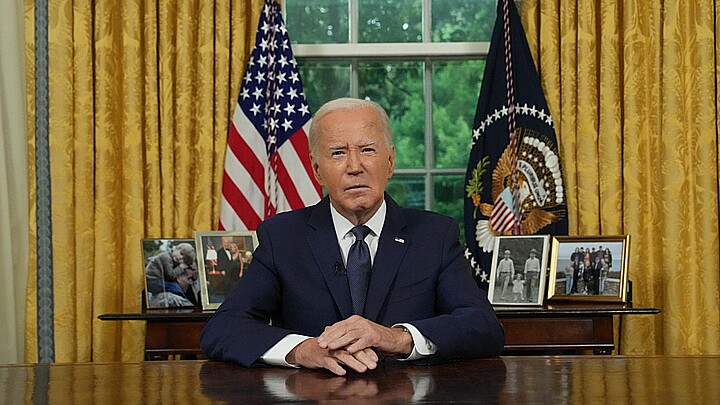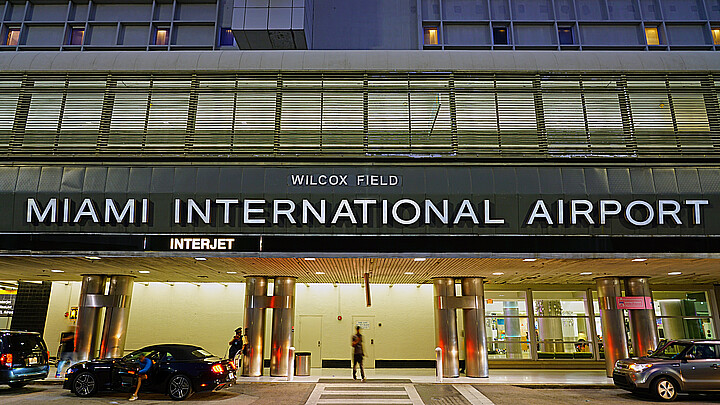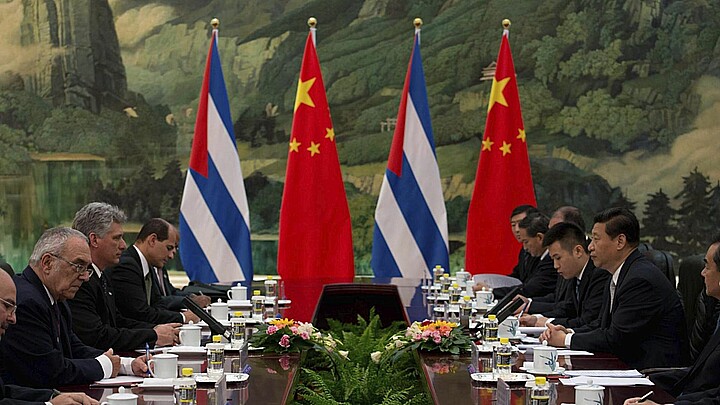Politics
Democrats pressure Biden to lift sanctions against Cuban military dictatorship
Democrats send letter demanding Biden remove sanctions while U.S. State Department instead calls for release of all political prisoners amidst reports of torture
December 17, 2021 3:42pm
Updated: December 19, 2021 2:56pm
More than 100 House Democrats are calling on the Biden administration to lift U.S. regulations on Miguel Diaz-Canel's military dictatorship in Cuba. In a letter sent on Tuesday, House Democrats – led by Reps. Jim McGovern, Barbara Lee and Bobby Rush Democrats – referred to the failing economic situation as “the worst economic and humanitarian crisis in recent history,” without addressing the failures of the communist regime throughout the past 62 years.
While the letter began as a plea to remove sanctions related to medical supplies, it also pushed for the removal of restrictions on banking and related financial transactions, which have proven to help the ailing regime survive. It also "urge[d] [Biden] to roll back the Trump Administration's restrictions on travel to Cuba," which have hurt profits since the major resorts are owned by or connected to GAESA, Cuba's armed forces business enterprise group.
Although the letter urges Biden to lift restrictions on family remittances and travel to Cuba, the present Trump-era sanctions have exceptions that allow Cuban-Americans to send limited financial support and visit their families.
According to a July 23, 2021 State Department fact sheet on Cuba, "The U.S. embargo allows humanitarian goods to reach Cuba and the U.S. government expedites requests to export humanitarian or medical supplies to Cuba. Through the Departments of Commerce, Treasury, and Transportation, there are many options available for expediting the provision of humanitarian goods to Cuba."
Democrats however continuously allege the Trump-era sanctions have created complications in sending aid from the U.S. and other countries.
"In addition to these immediate steps, we believe that a policy of engagement with Cuba serves U.S. interests and those of the Cuban people. It should lead to a more comprehensive effort to deepen engagement and normalization, including restarting diplomatic engagement at senior levels as well as through the re-staffing of each country’s respective embassies," they wrote, adding that it would be a "gesture of good faith" and "in the best interests of the United States."
Mass protests broke out in Cuba earlier this year across the country amidst cries for the communist regime to relinquish power. In the largest protest against the regime seen in decades, thousands of Cubans called for regime chief Miguel Diaz-Canel to step down.
The government cracked down on protesters by deploying security officers and government supporters to picket the homes of activists and dissidents. Countless dissidents remain imprisoned and reports of torture have surfaced.
On Dec. 18, Asst. Sec. of State for Western Hemisphere Affairs, Amb. Brian A. Nichols slammed the Cuban regime in support of the imprisoned dissidents.
We join @OAS_official & @Europarl_ES in speaking out against the plight of political prisoners like @jdanielferrer in #Cuba.
— Brian A. Nichols (@WHAAsstSecty) December 18, 2021
Together we condemn the abhorrent prison conditions and demand the release of all political prisoners.
"Together [with the Organization of American States and European Parliament], we condemn the abhorrent prison conditions and demand the release of all political prisoners," Mr. Nichols said on behalf of President Biden's State Department.










